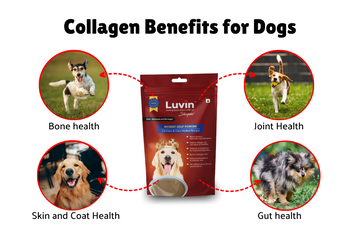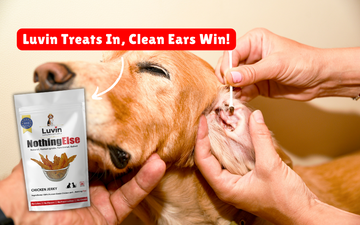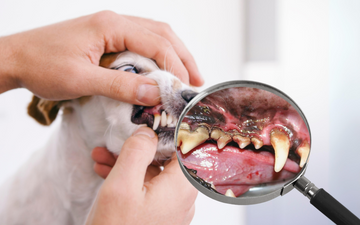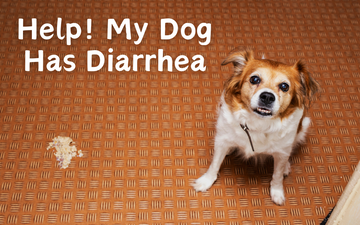
Sounds like a new word right? Would it surprise you to learn that collagen constitutes over 60% of the structural components in your dog's body? Collagen is the most abundant protein in your dog’s body it is like the glue that holds your furry friend's body together, found in joints, cartilage, blood vessels, gut, skin, and more.
Just like humans lose collagen at a rate of 1% each year, dogs lose their collagen at very similar rates if not faster.
Declining collagen results in a dull coat, painful joints, and an upset stomach.
What Is Collagen?
Collagen comes in various types, but when it comes to the well-being of our pets, types I and III are particularly noteworthy. These types of collagen play a significant role in promoting robust, healthy skin and fur. They contribute to maintaining skin's flexibility, keeping it well-hydrated, and potentially alleviating issues like dryness and itchiness.
Collagen just like other proteins in the body; undergoes a natural cycle of degradation and regeneration continuously, this cycle slows down with age. Leading to the weakening of connective tissues. Consequently, the skin becomes thinner and more susceptible to damage, tendons and ligaments lose some of their elasticity, and joints can become stiff and increasingly painful to move.
Collagen Benefits
Bone Health: Collagen plays a crucial role in maintaining bone health by serving as the protein platform upon which the process of bone mineralization occurs. Since bone collagen constantly undergoes breakdown, repair, and renewal, ensuring an adequate supply of collagen through dietary sources or collagen peptides is essential for sustaining strong and healthy bones throughout a pet's life.
Skin and Coat Health: A significant portion of a dog's dermal layer is composed of collagen. It can be very easily deduced that incorporating collagen into a dog's diet can contribute to preserving skin elasticity and supporting overall skin and fur health.
Joint Health: Healthy joints rely on the well-being of cartilage, and ligaments, as well as strong and healthy muscles, tendons, and connective tissues, all of which contain substantial amounts of collagen. Maintaining joint health is crucial not only for aging dogs but also for young, active, and healthy ones, as it helps prevent issues such as joint pain and mobility challenges.
Gut Health: Collagen improves digestion by helping in the reconstruction of your dog's gut's protective lining, if there is any problem in the concentration of bacteria that are found in your dog’s gut they will directly affect the gut lining causing inflammation, and stress that can gradually lead to the development of "gaps" in the intestinal lining.
Worry not collagen works to "seal and repair" these gaps by creating connective tissue and supplying essential healing amino acids like glycine and lysine to support the healing process of the intestinal lining helping improve digestion.
Collagen In Diet
Research on the use of collagen in dog food is relatively limited, but there is promising evidence of its benefits in humans and other animals.
Collagen is derived from fish skin, scales, bones, and fins. Its low molecular weight allows for efficient absorption.
Collagen from the bones, hides, and cartilage of cattle, bovine collagen is especially useful for skin, bone, joint, and leaky gut health. Bovine collagen can boost the body’s own collagen production.
Collagen derived from chicken, turkey, duck, and other domestic poultry aids in cartilage support.
Eggs are also a good collagen source.
These ingredients are being incorporated into pet food to provide your dog with the optimal amount of collagen, not just pet food collagen is now available as powders, treats, and supplements.
LUVIN Slurpin' Instant Soup Powder for Dogs is made with collagen for cell repair and mobility.
Is Collagen Important?
Younger dogs may not have the same immediate need for supplemental collagen as older dogs, Genetics also play a role, with certain dog breeds being more susceptible to joint diseases. Larger dogs, in particular, are more prone to joint issues and arthritis, but these concerns can affect dogs of all sizes and breeds these breeds may require supplements from an early age to improve their quality of life as dogs age.
It's important to consult with your veterinarian before introducing any supplements to your dog's diet, but collagen is generally considered safe and won't harm your pet.






